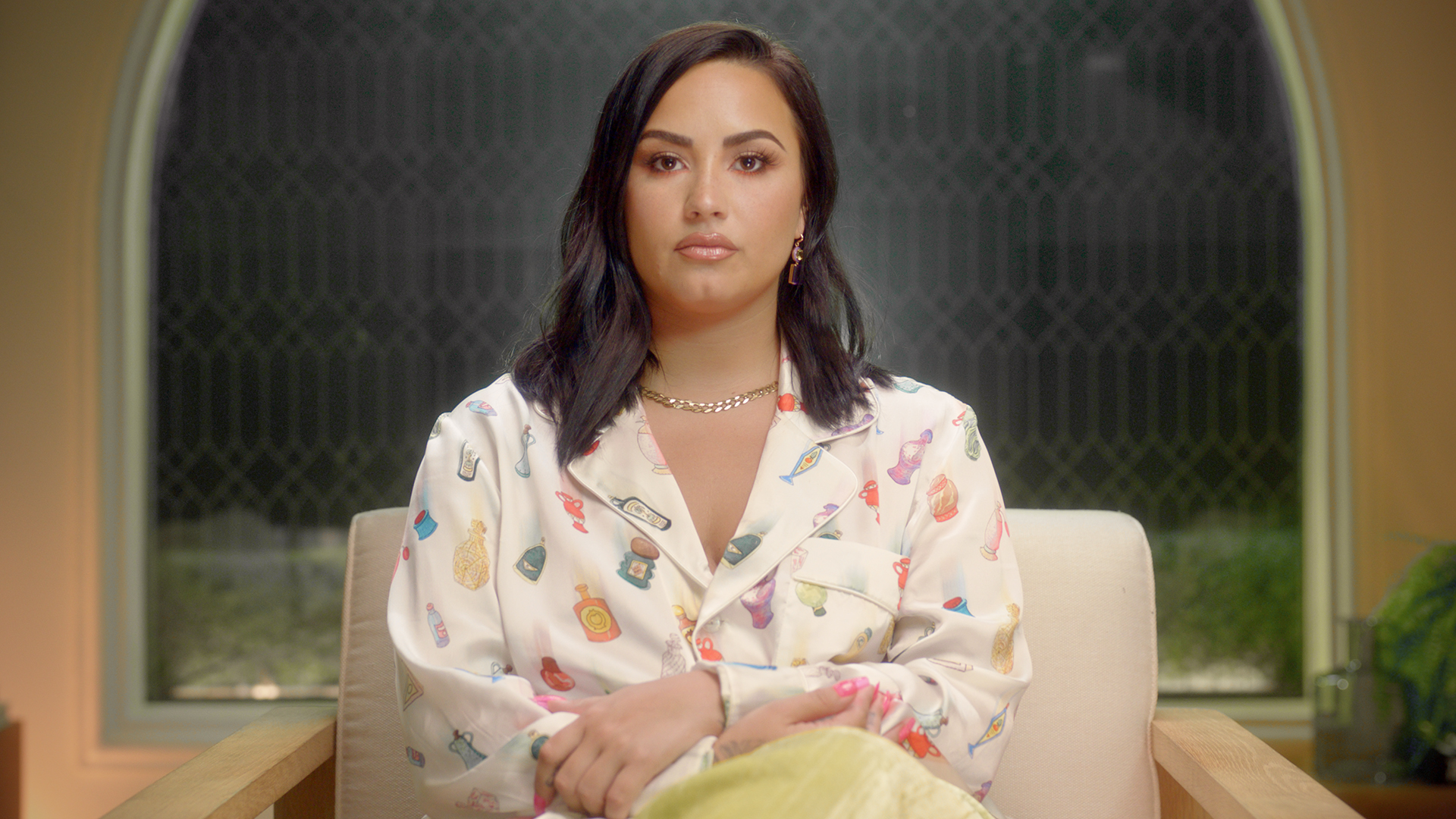Since her Disney days in the early 2000s, I’ve looked up to Demi Lovato as one of the most versatile Latina artists in the music industry today. As a pre-teen, I resonated with the adolescent sound and themes on her pop-rock album Don’t Forget (2008), and with each subsequent music release, seemed to mature alongside her. I was eighteen and heartbroken when she overdosed in 2018. I had grown up in close proximity to addiction, but never to the degree that Lovato experienced that night. Watching the first two episodes of her four-part docuseries Dancing With the Devil gave me powerful insight into Lovato’s past traumas, her open and honest struggle with sobriety, and the pressure of perfection in the public eye.
The first two episodes of Lovato’s docuseries were released on March 23rd—the final two premiering on March 30th and April 6th, respectively—and already she’s shared so much about all the factors from childhood and even into adulthood that played pivotal roles in her addictions and relapses throughout the years.
From child beauty pageants to her appearance on Barney and Friends (1992-2010)—both of which severely lowered her self esteem—to her father’s addiction, physical abuse, and struggle with bipolar disorder, it was jarring learning about how many instances of trauma Lovato had experienced before puberty. And it didn’t end there.
It’s strange now to rewatch Camp Rock (2008) knowing that it was released the same year she was raped by a fellow Disney Channel star. Or viewing Sonny With a Chance (2009-2011) understanding that those years were the worst for her eating disorder. It’s heartbreaking to realize that Lovato was recognized internationally and yet had little say over her image or day-to-day activities.
It’s heartbreaking to realize that Lovato was recognized internationally and yet had little say over her image or day-to-day activities.
Lovato alleges this lack of control was a pivotal factor in her relapse and overdose in 2018. In the documentary, she discusses the way her former team would regulate her daily food intake, even checking bank statements and restricting what her friends could eat in front of her.
All of it came to a head when Lovato was found unresponsive and blue on July 28, 2018. But as she reveals in the documentary, that was just the tip of the iceberg.
Compared to the beautiful, put-together woman sitting in front of the camera completing these interviews, it was difficult for me to believe the image she painted of herself that day. She describes how she’d experienced three strokes, a heart attack, brain damage, blindness, pneumonia, multiple organ failures—all of which she recovered from—but even now, she struggles to fill a cup of water and can no longer drive because of her blind spots.
It only goes to show that trauma, both physical and mental, doesn’t go away overnight and it shouldn’t be expected to.
But I was most surprised to learn that her assistant Jordan Jackson had been afraid to call 911 in case she got in trouble with the rest of Lovato’s team, even asking the dispatcher to turn off the sirens on the ambulance to avoid drawing attention. And worst of all, Lovato’s loved ones were the last to know, TMZ releasing the news online before it could be communicated to her family.
Even when five to ten minutes from dying, Lovato’s agency was taken away from her, transforming her overdose, her secret pain, into a click-bait spectacle that left her family in the dark.
It only goes to show that trauma, both physical and mental, doesn’t go away overnight and it shouldn’t be expected to.
Unfortunately, this type of story isn’t new. Look at Judy Garland, Britney Spears, or any woman in the entertainment industry dealing with similar circumstances.
Dancing With the Devil was incredibly impactful to watch. I couldn’t always relate to the topics that were covered but was impressed by Lovato’s willingness to be open and vulnerable in such a personal realm of her life even after so many years under the constant gaze of millions of fans and critics.
Though many have pointed out that she’s lied about her sobriety before, I’d argue that it’s not our place to demand authenticity, even from celebrities who willingly release personal struggles online. This time around, Lovato feels more real and, if anything, leaves us on a hopeful note in the second episode, finally ready to move forward with new music and into the next chapter of her life.
The next episode of Dancing With the Devil will be released on March 30, 2021.
If you or someone you know is struggling with addiction, please contact the SAMHSA substance abuse helpline at 1-800-662-HELP.
If you or someone you know is battling an eating disorder, please contact the National Eating Disorders Association (NEDA) at 1-800-931-2237 or go to NationalEatingDisorders.org.

